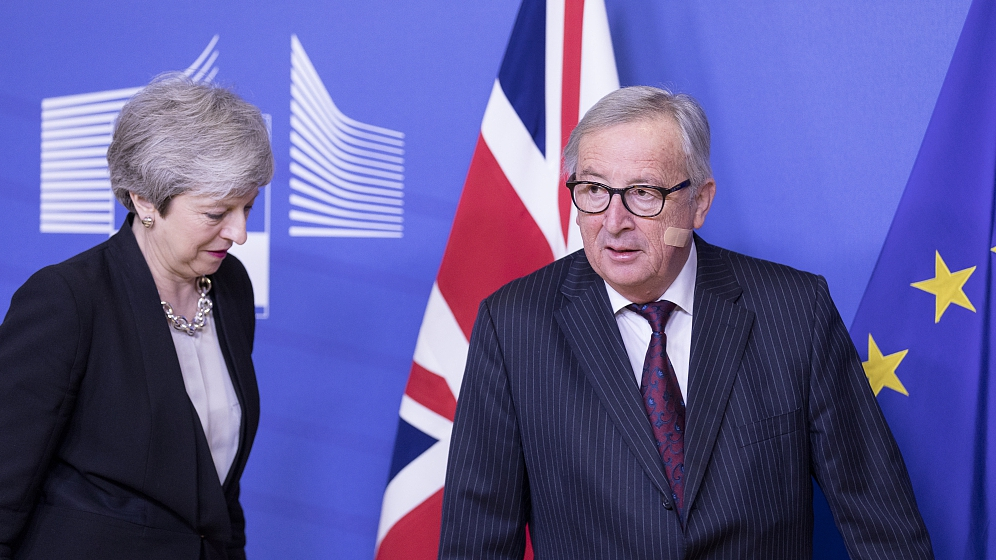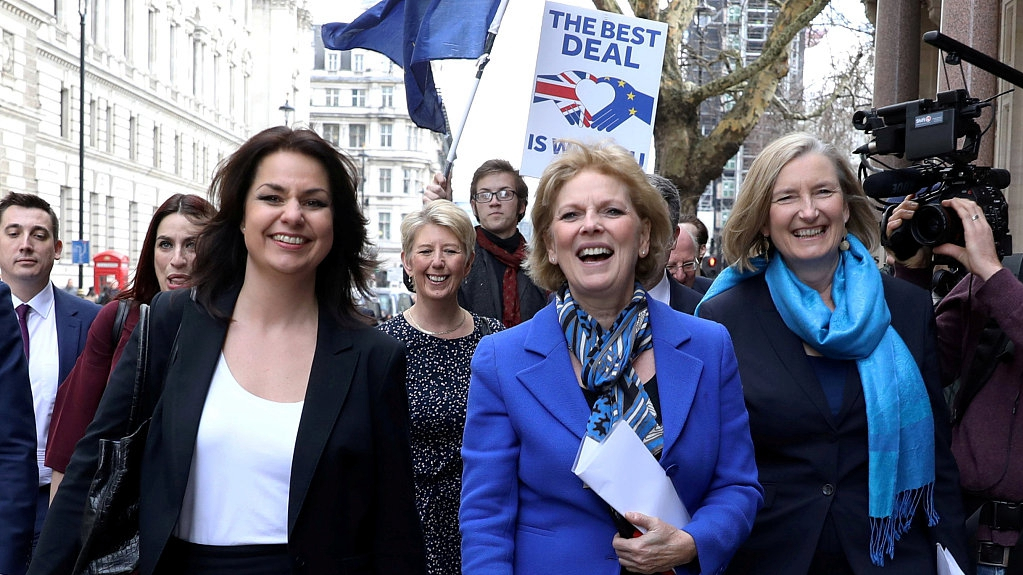
Europe
18:10, 22-Feb-2019
Will Red Sea talks unlock the Brexit impasse?
By John Goodrich

Could the key to Brexit be found in Egypt?
After a week in which British politics was hit by its biggest split in nearly four decades, Prime Minister Theresa May will travel to Sharm el-Sheikh at the weekend in a bid to break the deadlock over the country's scheduled exit from the European Union.
May will fly nearly 4,000 kilometers to the Egyptian resort for the very first EU-Arab League summit, and while Brexit is not on the official agenda, it will be very much on the prime minister's as she seeks to press EU leaders on the Irish border question.
A government official told Sky News that while May will not try to make the two-day meeting about Brexit, "at summits, the prime minister always holds a series of bilateral meetings and conversations and she will continue to engage with fellow leaders in relation to Brexit."

British Prime Minister Theresa May and European Commission President Jean-Claude Juncker in Brussels, Belgium, February 20, 2019. /VCG Photo
British Prime Minister Theresa May and European Commission President Jean-Claude Juncker in Brussels, Belgium, February 20, 2019. /VCG Photo
With the next round of Brexit votes scheduled for February 27, May needs a boost, especially given high-level talks in Brussels wrapped up with little substantive progress this week.
European Commission President Jean-Claude Juncker went as far as to say he was "not very optimistic" about a deal after talks with the UK prime minister this week, so she will be working hard to get some kind of breakthrough – or promise of progress – before Wednesday's votes.
The Red Sea summit is vital because it will be May's only opportunity to meet other EU leaders en masse before a European Council summit on March 21-22 – just one week before the current Brexit date.
Whether May can strike a deal before next week's vote is far from clear: Chancellor Philip Hammond has suggested it is possible, but the EU is thought to be wary of offering concessions that could still be rejected by MPs. The government is looking for enough leeway for it to change its legal advice that the Irish "backstop" is indefinite.
Unless concessions allowing that are on the table, a meaningful vote would almost certainly result in defeat – and so is unlikely to be held. That would mean another motion, like that on which the government lost on February 14.
Amendments with far-reaching consequences are expected to be voted on, however.
The most talked about are the Cooper-Letwin amendment – which could lead to an extension of Article 50 rather than allow a no-deal exit – and the Kyle-Wilson amendment, which offers support for May's Brexit deal in return for a referendum on it. The latter could only be connected to a meaningful vote.
The Cooper-Letwin amendment is of particular concern to May because up to a quarter of her government is reported to be ready to vote for it unless the prime minister rules out a no-deal beforehand. That could mean high-level resignations or sackings unless a free vote is offered.

Members of the new Independent Group in London, February 20, 2019. /VCG Photo
Members of the new Independent Group in London, February 20, 2019. /VCG Photo
May on Thursday showed a new willingness to reach out, with the risk of more defections to the new Independent Group looming large. She met pro-European MPs from her Conservative Party, one of whom, former minister Justine Greening, said she was granted an audience with the prime minister after "multiple" rejected requests in recent weeks.
Although only three Conservative MPs have so far quit the party – compared to eight for Labour – the loss of the trio had a harder impact because the Conservatives govern with only a slim majority, aided by the Democratic Unionists.
If a handful more lawmakers make a move to the new grouping, the government will be left without a working majority. Several high profile MPs have said they will leave the party if no-deal becomes official policy.
The birth of The Independent Group appears not only to have jolted the Conservatives, with Labour reportedly now inching towards backing a second referendum via the Kyle-Wilson amendment.
If the party does back a new public poll it could risk alienating voters in Brexit-supporting constituencies, but would also hope to stem the tide of departures in the short term – one of the main reasons for the eight MPs quitting on Monday was a refusal to accept a second referendum – and spike the momentum of the new grouping.
May faces another tough seven days, with resignations and defeats possible by Wednesday. In making a 10-hour round-trip to Egypt, she will at least hope to begin the week with some positive momentum.

SITEMAP
Copyright © 2018 CGTN. Beijing ICP prepared NO.16065310-3
Copyright © 2018 CGTN. Beijing ICP prepared NO.16065310-3